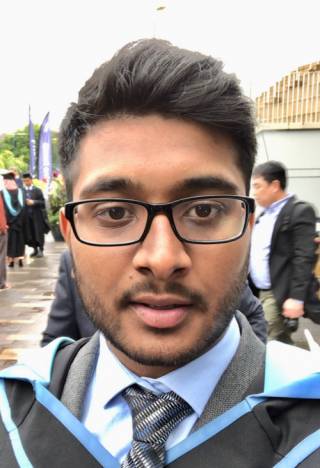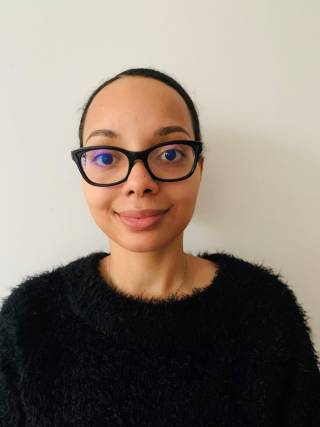Read and hear about the experiences of previous students on our PhD programmes.
Child Health Research PhD student profiles
Raasib Mahmood "My name is Raasib Mahmood and I studied MSc Neuroscience at Nottingham University. I became fascinated by the developmental processes that occur in utero to form an embryo and how perturbations in these processes lead to fatal or debilitating defects in the developing child. I took this opportunity to join the Developmental Biology of Birth Defects section at ICH, which provides a research focus for scientists and clinicians to make inroads into the questions of pathogenesis and prevention of congenital malformations. I joined the Copp-Greene Laboratory in 2017, known internationally for their expertise in animal models of birth defects. I thoroughly enjoyed my time here; my supervisors and peers were supportive and motivating such that I now find myself pursuing a PhD. My PhD addresses an intriguing question in the field of nervous system development and disease: Why does the brain fail to close more commonly in females than males? Studying at ICH has provided many opportunities to improve my research and transferable skills. The academic knowledge at ICH, together with its research and learning opportunities, and regular work and social meetings provides a platform to be inspired, expand knowledge, and employ the tools needed to become an independent researcher." |
Diana Rosenthal "My name is Diana Margot Rosenthal. I graduated with a BA-MPA from NYU Gallatin School of Individualized Study and Robert F. Wagner Graduate School of Public Service in the Health Policy and Management Program (’16) and a MSc in Demography and Health at the London School of Hygiene and Tropical Medicine (’17). I have coordinated many international research projects with a focus on health inequalities, health policy, health behaviour, health promotion, shared-decision making, patient-provider interactions, task shifting and chronic conditions. Currently, I am exploring my research interests including inclusion health, environmental health, child health, mixed methods, citizen science, co-production, and sustainability. My PhD explores barriers and facilitators to optimal health and health services access for children under age 5 living in temporary accommodation due to experiencing homelessness in England with the London Borough of Newham as an exemplar. ICH has provided me with the opportunity to build and expand my research and transferrable skills while working as an independent researcher with the support of a multidisciplinary supervisory team so that I can work collaboratively across disciplines including the arts and public engagement to improve health outcomes. My supervisors have supported me as I further my career through publications, teaching and co-leading in grant writing. I also serve on the GOS ICH Equality, Diversity and Inclusion Steering Committee to ensure that there is a ‘Voice for All’ through equality and equity for everyone to develop to their full potential and be acknowledged for their contributions, while promoting a culture of acceptance. In addition, I co-chair the Disability Visibility focus group. I plan to explore post-doctoral training opportunities and continue work in the field of inclusion health with vulnerable populations that are often left invisible in the eyes of the public, government and research community." |
Laurette Bukasa “My name is Laurette Bukasa. I graduated with a BSc in Chemistry at the University of Manchester, and an MSc in Epidemiology at the London School of Hygiene & Tropical Medicine. I am a second year part-time PhD-staff student in the Population, Policy and Practice Research and Teaching department. I am working on an epidemiological project looking at the health and survival of children HIV-exposed and uninfected in the UK using surveillance and administrative data sources. The research community at the Institute and UCL is vast. A great benefit of studying here is that you are amongst those leading in their field, and so exploring alternative areas and approaches to your own research is made possible. There are a wealth of opportunities to train outside of your specific research area, and to enhance your skill set for life after study, through courses both unique to ICH and as part of the UCL Doctoral School. You are also never short of avenues for inspiration through regular events hosted by both internal and external colleagues. Studying at ICH will equip me both with world-class training by the best in the field, and a network that will follow me on my journey long after I leave. I believe that your network can be in some cases, as important as your education and cultivating relationships with fellow students and academics can be beneficial for both your career and your personal development. I anticipate that following my studies, my experience at ICH will have facilitated significant growth in both areas.” |
 Close
Close




